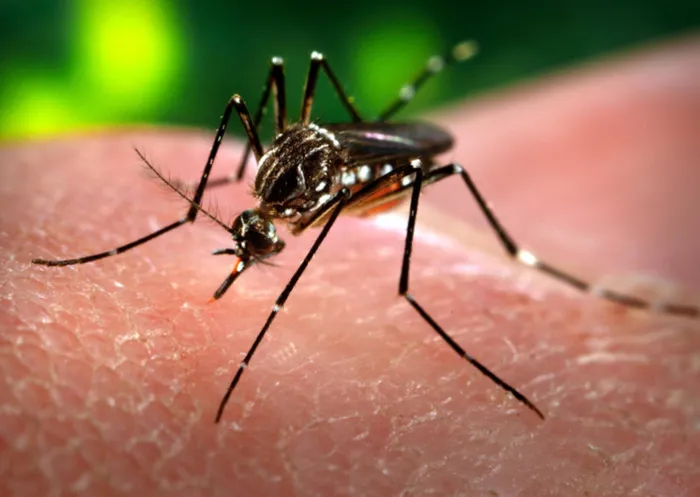No hiding from blood-thirsty mosquitoes

Researchers from the California Institute of Technology began by looking at the insect's sense of smell. Researchers from the California Institute of Technology began by looking at the insect's sense of smell.
London - You’ve doused yourself in insect repellent, covered up every possible inch of skin and lit a few citronella candles for good measure.
But soon enough, the tell-tale itching starts; a blood-thirsty mosquito has managed to breach your defences.
Now scientists have suggested that you actually have little chance of keeping the insects at bay – all thanks to their three-pronged method of tracking down humans.
First, they sniff us out, picking up the scent of our breath from up to 165ft away. Then they see us, clocking us from up to 50ft, and finally, they sense our body heat.
As a result, it is next to impossible to avoid them. Even if we were able to become invisible, they would find us. The mosquito’s hunting strategy is, say the Californian scientists, “annoyingly robust”.
Researchers from the California Institute of Technology began by looking at the insect’s sense of smell.
They showed the females – the biting sex – followed plumes rich in carbon dioxide, the gas we breathe out. However, they had no interest in normal air. In situations where carbon dioxide was high – where there were humans exhaling – the hungry females were also attracted to dark shapes.
Heat was shown to be important, with objects at body temperature of more interest than those at room temperature, the journal Current Biology reports. Researcher Michael Dickinson said: “Understanding how brains combine information from different senses to make appropriate decisions is one of the central challenges in neuroscience. Our experiments suggest that female mosquitoes do this in a rather elegant way when searching for food.
“They only pay attention to visual features after they detect an odour that indicates the presence of a host nearby. This helps ensure that they don’t waste their time investigating false targets like rocks and vegetation.”
The research could help in the hunt for better repellents.
But, in the meantime, it seems we will have to accept that the mosquito is a force to be reckoned with.
The researchers said: “Even if it were possible to hold one’s breath indefinitely, another human breathing nearby, or several metres upwind, would create a carbon dioxide plume that could lead mosquitoes close enough to you that they may lock on to your visual signature.
“The strongest defence is therefore to become invisible, or at least visually camouflaged. Even in this case, however, mosquitoes could still locate you by tracking the heat signature of your body.”
Daily Mail